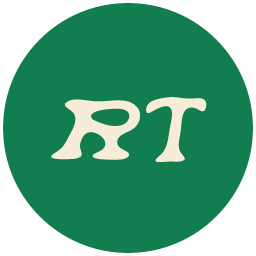Hello and welcome to the second edition of Reality Test! It was very fulfilling and only slightly terrifying to see how many people subscribed to the first newsletter. Therapy is important to a lot of us, and how we talk about it matters. I’m stoked to explore whatever this becomes with you all! I appreciate you!!
I’ve been thinking a lot about what feels like a sort of backlash to therapy. And to me, there is no clearer representation of that than the absolute barrage of articles complaining about the same thing: THERAPY SPEAK.
It’s a label coined to describe a group of terms with origins in various therapeutic and psychological frameworks and theories – boundaries, attachment style, self-regulation, and the like. As the language gained traction on social media during the pandemic, the label “therapy speak” seemed to emerge out of a feeling among some people of discomfort with the casual use of these phrases, underscoring some fatigue or disillusionment with therapy as a whole. (I understand this – individual mental health maintenance during any number of ongoing global crises can feel futile and insignificant. More on that another day.)
The commentary is neverending. The requisite explainer article on literally every digital media platform will generally include a news tie-in (probably something related to the Jonah Hill "boundaries" text debacle), an expert quote or two, and most likely, a warning about how it makes us worse people.
Even the Wikipedia entry is salty:
Instead of saying something CLEAR, they might use THERAPY SPEAK to be VAGUE because they’re DEEPLY INSECURE.
But the colloquial use of terms originating in psychology or psychoanalysis (and the backlash against it) is nothing new. In fact, it follows a rich tradition of people being annoyed by jargon creep. Some examples:
Have you ever heard someone talk about ego? What about their “unconscious,” or being “in denial?” That’s the language of Freud, which has been used in ways that are both helpful and harmful in probably equal measure for about a century. Skip ahead to the 1960s and ‘70s, when the now-multibillion dollar self-help industry gained popularity, annoying many boomers with its New Age-y psychobabble. Richard Rosen, who coined the term in his 1977 book Psychobabble: Fast Talk and Quick Cure in the Era of Feeling, wrote the following (emphasis mine):
“Psychobabble represents the rejection of narration in favor of psychological ad copy…. True psychobabble has all the intimacy of two [...] computer terminals conversing in an Artificial Intelligence lab, and all in the name of interpersonal relations.”
In other words:
The 2010s version of this revolved more around the tendency to casually ascribe psychiatric diagnostic labels to people, places and things in ways that were inaccurate, insulting, and stigmatizing: Cleaning your apartment is so OCD, someone’s erratic behavior is schizophrenic. In 2011, the IMF got some heat when, in the World Economic Outlook they “characterized a volatile global economy as ‘bipolar.’”
The terms changed over the years based on new research, modalities, and trends, but the response feels familiar.
Present-day therapy speak situates itself more relationally: having space for others, self-care, attending to one’s needs, as well as the language of trauma and abuse. (Ask me what trauma bonding actually means.)
Yes, psychological jargon has seeped into the colloquial. Yes, it is often misused and sometimes abused. Yes, this is annoying:
But maybe, on the whole…it’s just not that big of a deal.
Language is adaptive, cyclical, and follows trends. “Therapy speak” is just a bundle of terms that have been packaged and labeled, misused and overanalyzed. Its framing as a new and significant concept has been grossly inflated, and the backlash threatens to swing the pendulum back toward the direction of stigma. Maybe we’re just adjusting to a new lexicon that can actually be pretty helpful. As Katy Waldman wrote in her thoughtful 2021 piece on the topic for The New Yorker, “It only makes sense [...] that the language of psychology has seeped into the rest of our lives; psychology itself is entwined with the rest of our lives.”
Therapy is not about the terms we use to communicate, it’s how we communicate. If Jonah Hill hadn’t misused the concept “boundaries,” I’m sure he would have been an asshole in some other way. Yes, he weaponized “therapy speak;” more importantly, though, he weaponized his power in the relationship.
In therapy, you should be able to talk like you. You might learn some terms that help define and normalize your experience. This is usually a good thing. That said, when my clients lead with jargon in a session, I might ask them to re-describe the experience in their own words. Then we can decide together whether the concept they’ve presented still applies.
I generally avoid giving advice…but I contain multitudes. So here it is: If you hear any therapy-ish advice on social media, be skeptical. If you’re not sure whether you’re using a term correctly, try to say it again in other words. Resist the urge to immediately dismiss any attempt at thoughtful communication from a loved one because they used a word you read about on the internet. If you feel someone is using therapy terms in an attempt to excuse behavior that is harmful or violating, trust your intuition. Seek clarity, always.
Ultimately – no, therapy speak is not making us worse people. As with anything, sometimes the language is helpful and sometimes it is not. But that’s something you need to discover for yourself. You could always try talking it through in therapy.
Cognitive distortions
MAGA twitter has taken a liking to “gaslighting.” I’m obsessed with this. They can have it.
That’s all for this week’s Reality Test! Thanks again to all who subscribed. Send feedback, ideas, and tell your friends. And, if you or someone you know is interested in what a therapist actually talks like, my books are open.










Subscribed. I suspect we may have some neat overlaps :-)